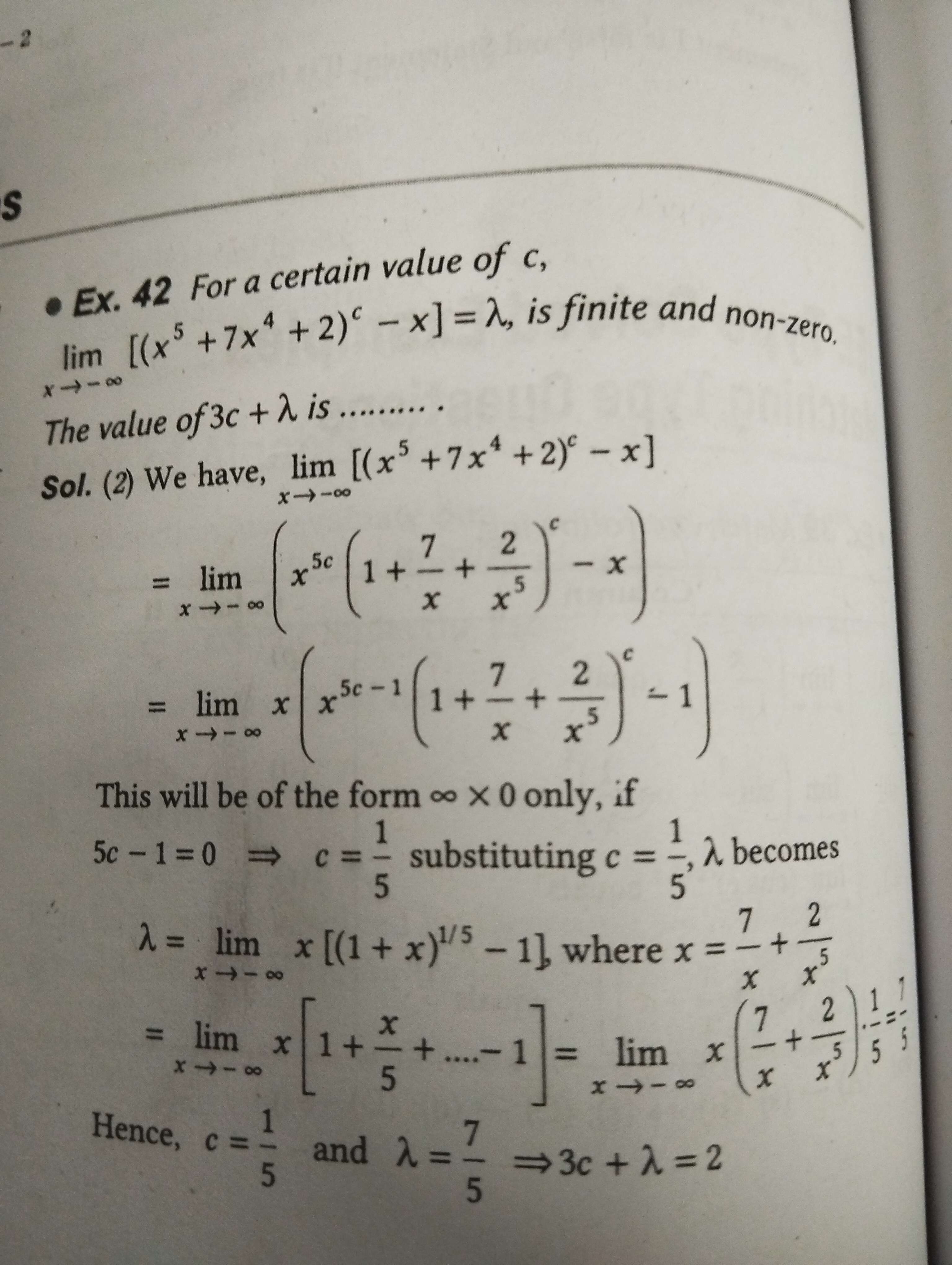Limits question
I don't understand why we have forced 5c-1=0 so we can get infinity x zero form

10 Replies
@Apu
Note for OP
+solved @user1 @user2... to close the thread when your doubt is solved. Mention the users who helped you solve the doubt. This will be added to their stats.Is there a simpler soln?
If c>0.2; the limit blows to -infinity (given that it is defined, i.e., c is an integer). Similarly if c<0.2, limit blows to infinity.
So basically,it cannot be solved unless c=0.2 i.e that's the only case where finite limit exists?
That's the only case where the limit is finite and non-zero, yes.
Alright
How was I supposed to think of this in the question though?
Like, what was my line of thinking supposed to be after factoring out x^5c
Because that's where I could reach
I understand the rest of it but idk how I'm supposed to think of stuff like this
Inside the bracket, x^5 term dominates over all the other terms and for limit to be finite, (->x^5)^c and x must have a small finite difference, which is only possible if c=1/5
Thanks
+solved @SirLancelotDuLac
Post locked and archived successfully!
Archived by
<@895699982265511976> (895699982265511976)
Time
<t:1749358966:R>
Solved by
<@1075951732460376214> (1075951732460376214)